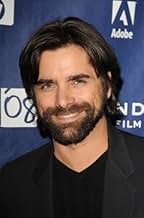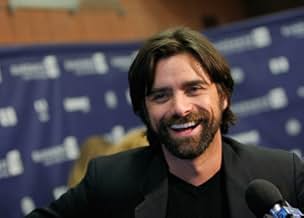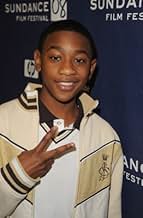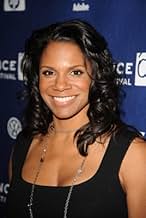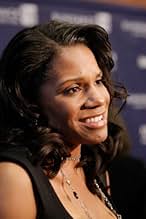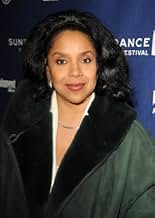CALIFICACIÓN DE IMDb
6.5/10
2.2 k
TU CALIFICACIÓN
Agrega una trama en tu idiomaAn African-American family struggles with poverty, racism, and inner conflict as they strive for a better way of life. Based on the play by Lorraine Hansberry.An African-American family struggles with poverty, racism, and inner conflict as they strive for a better way of life. Based on the play by Lorraine Hansberry.An African-American family struggles with poverty, racism, and inner conflict as they strive for a better way of life. Based on the play by Lorraine Hansberry.
- Dirección
- Guionistas
- Elenco
- Nominado a 3 premios Primetime Emmy
- 9 premios ganados y 24 nominaciones en total
Sean 'Diddy' Combs
- Walter Lee Younger
- (as Sean Combs)
Ron Cephas Jones
- Willy Harris
- (as Ron C. Jones)
- Dirección
- Guionistas
- Todo el elenco y el equipo
- Producción, taquilla y más en IMDbPro
Opiniones destacadas
I think the movie was pretty good. The actors were great. They knew what was happening. The book and the movie are very similar. Some scenes are added or some don't show up. For example in the movie it gives more details than the book. It shows more and in the book it mostly takes place in the Younger's apartment. In the movie the setting is not just in the apartment. The ending in the book is different from the ending in the movie but besides that I liked the movie/book.
There is nothing wrong with remaking and recasting the Lorraine Hansberry masterwork; we shouldn't pay undue fealty to the original cast. I'm sure Olivier's, Jacobi's, and Branaugh's Hamlet would suffer in comparison to the original Burbage performance. Plays are meant to be inhabited by different people as the generations pass. Therefore, there is nothing wrong, in theory, to the making of this version.
This rendition is superior to the 1989 "American Playhouse" performance, which was poorly paced and largely overacted. The female parts are perfectly cast and performed. The same cannot be said, unfortunately, for the male parts.
P. Diddy, or Sean Combs, or whatever name he is going by these days, simply does not have the acting chops to bring out the complexities of the Walter Younger character. Where Sidney Poitier and, to a lesser extent, Danny Glover, were able to grasp hold of the anger and frustration of the man, Mr. Diddy twitches and frowns. He performs as if a lowered head and furrowed eyebrows are the makings of a great performance. I was reminded of Hayden Christianson taking the complex evil of Darth Vader and turning him into a naughty teenager. Combs plays Walter like a street punk.
Sean Patrick Thomas, as George Murchison, fares a little better. He does what he can with what is essentially a superficial and somewhat stereotyped character.
The greatest error is the miscasting of John Stamos as Lindner. He gives the character a harder, more outwardly racist edge than John Fiedler, who created the role. Stamos drips hatred and prejudice just a little too much -- it is easy to ultimately say no to him just to tick him off. Fiedler, working with Hansberry, had a much better grip on the role -- not a man who is outwardly racist, but as one who is sadly misinformed, ignorant (meaning, simply, not understanding), and afraid. Stamos tries to chew up just a little too much scenery.
David Oyelowo, as Joseph Asagai, is the most well cast male in the film, hitting every note required by the character.
The female cast fares far better. Phylicia Rashad recreates and improves upon the role of Lena Younger, breaking the "Mammy"-isms of the earlier performers. Audra McDonald certainly will not usurp Ruby Dee as the definitive Ruth Younger, but does an excellent job in a part that requires an extreme range of emotion.
The greatest revelation in the film by far is Sanaa Lathan as Beneatha. Beneatha is a key character in the play and is relatively ignored in the original, and not particularly well played in the 1989 version. Playing a character substantially younger than she is in real live, Lathan is able to exhibit the hope, anger, childish "know-it-all" attitude and sadness of a young woman in her position. Unfortunately, the screenwriters chose to omit her lovely, sad second-act monologue about her desire to become a doctor; this section was excised in the original film and restored in the American Playhouse version and should have been present here.
Overall, this is a worthwhile film, but imperfect in many ways.
This rendition is superior to the 1989 "American Playhouse" performance, which was poorly paced and largely overacted. The female parts are perfectly cast and performed. The same cannot be said, unfortunately, for the male parts.
P. Diddy, or Sean Combs, or whatever name he is going by these days, simply does not have the acting chops to bring out the complexities of the Walter Younger character. Where Sidney Poitier and, to a lesser extent, Danny Glover, were able to grasp hold of the anger and frustration of the man, Mr. Diddy twitches and frowns. He performs as if a lowered head and furrowed eyebrows are the makings of a great performance. I was reminded of Hayden Christianson taking the complex evil of Darth Vader and turning him into a naughty teenager. Combs plays Walter like a street punk.
Sean Patrick Thomas, as George Murchison, fares a little better. He does what he can with what is essentially a superficial and somewhat stereotyped character.
The greatest error is the miscasting of John Stamos as Lindner. He gives the character a harder, more outwardly racist edge than John Fiedler, who created the role. Stamos drips hatred and prejudice just a little too much -- it is easy to ultimately say no to him just to tick him off. Fiedler, working with Hansberry, had a much better grip on the role -- not a man who is outwardly racist, but as one who is sadly misinformed, ignorant (meaning, simply, not understanding), and afraid. Stamos tries to chew up just a little too much scenery.
David Oyelowo, as Joseph Asagai, is the most well cast male in the film, hitting every note required by the character.
The female cast fares far better. Phylicia Rashad recreates and improves upon the role of Lena Younger, breaking the "Mammy"-isms of the earlier performers. Audra McDonald certainly will not usurp Ruby Dee as the definitive Ruth Younger, but does an excellent job in a part that requires an extreme range of emotion.
The greatest revelation in the film by far is Sanaa Lathan as Beneatha. Beneatha is a key character in the play and is relatively ignored in the original, and not particularly well played in the 1989 version. Playing a character substantially younger than she is in real live, Lathan is able to exhibit the hope, anger, childish "know-it-all" attitude and sadness of a young woman in her position. Unfortunately, the screenwriters chose to omit her lovely, sad second-act monologue about her desire to become a doctor; this section was excised in the original film and restored in the American Playhouse version and should have been present here.
Overall, this is a worthwhile film, but imperfect in many ways.
I can honestly say I enjoyed this movie, I enjoyed the 1984(?) version with Danny Glover and was hoping to catch a treat with this film. A treat a received greatly.
Yes this film had many flaws, as does every movie. So I shall give the flaws then the bright side of the film Flaws: I was bored the first half of the film, it moved in a little slow, and Sean Combs performance didn't help. I felt that the cast excluding Sean Combs was superb and was full of real emotion and strength. Combs was trying to hard to act, when he should have let it flow and have a real feeling for the character and not just try to over act. He does have his moments though, but those moment are quickly cut back to his not letting it flow and not having a true feeling for the character.
Bright Side: The film was a delight. Raw emotion and strength from the leading ladies and the leading men(excluding Sean Combs). Phylicia Rashad was full of emotion and pride, that you instantly love her and feel for her and the pain she goes through. Audra McDonald is superb and excellent actress who is going somewhere, you also feel for her and go through struggles and emotion. Beneatha Younger (Sanaa Lathan) is spunky, yet naive. You love her and many of my young generation can relate to her.
Overall: The acting is brilliant coming from the cast, again excluding Sean Combs yet he does have moments. Direction is great, and the feel and emotion and strength is just excellent 8/10 -Izzy
Yes this film had many flaws, as does every movie. So I shall give the flaws then the bright side of the film Flaws: I was bored the first half of the film, it moved in a little slow, and Sean Combs performance didn't help. I felt that the cast excluding Sean Combs was superb and was full of real emotion and strength. Combs was trying to hard to act, when he should have let it flow and have a real feeling for the character and not just try to over act. He does have his moments though, but those moment are quickly cut back to his not letting it flow and not having a true feeling for the character.
Bright Side: The film was a delight. Raw emotion and strength from the leading ladies and the leading men(excluding Sean Combs). Phylicia Rashad was full of emotion and pride, that you instantly love her and feel for her and the pain she goes through. Audra McDonald is superb and excellent actress who is going somewhere, you also feel for her and go through struggles and emotion. Beneatha Younger (Sanaa Lathan) is spunky, yet naive. You love her and many of my young generation can relate to her.
Overall: The acting is brilliant coming from the cast, again excluding Sean Combs yet he does have moments. Direction is great, and the feel and emotion and strength is just excellent 8/10 -Izzy
6/10 - a movie based on an award-winning play that just didn't quite capture the true feeling of its source material
A RAISIN IN THE SUN is the 2nd television remake of the 1961 film based on the play by Lorraine Hansberry and the recent Broadway revival about broken dreams that centers on the Younger family, a hard-working black family living in a cramped Chicago tenement in 1959, to whom we are introduced to the day before the family is to receive a $10,000.00 insurance check and the tensions that arise from the plans that the young patriarch of the family has already made for money that really isn't his. Lena Younger (Phylicia Rachad) is a strong,God-fearing woman who has worked as a housekeeper to a white family for years but has decided to retire because of her impending windfall (the check is only coming because of the death of Lena's husband). Walter Lee Younger (Executive Producer Sean "Puffy" Combs)is a chauffeur who wants to use Lena's money to start his own business. Walter's wife, Ruth (Audra McDonald)is a strong-willed woman who finds herself constantly torn between her husband and her mother-in-law, often at the expense of her son Travis(Justin Martin). Beneatha (Sanaa Lathan) is Walter's flighty, free-spirited sister, struggling to find her identity as a black woman, full of more dreams than she can handle, which are further complicated by her relationships with two completely different kind of men. This story first hit theaters in 1961 with Sidney Poiter as Walter Lee, Ruby Dee as Ruth, and Claudia McNeill as Lena. Combs has brought the cast of the highly successful Broadway revival (which won Tony Awards for Rachad and McDonald) to the small screen and aided by the detailed direction of Kenny Leon, has opened up the story for the television screen without losing the story's intensity or intimacy. Phylicia Rachad is nothing short of brilliant, in the performance of her career, as Lena, the proud matriarch struggling to hold her family together and hoping that this money might help. Audra McDonald, who has won 4 Tony Awards for her work in Broadway musicals and won a fifth for this role on Broadway, proves that she is as powerful an actress as she is songstress as she brings a depth and substance to the pivotal role of Ruth that I have never seen before. Sanaa Lathan also offers one of her best performances as the bombastic Beneatha, a walking talking hurricane of emotions struggling to find who she is in a world where she feels like she is suffocating. Sadly, Sean Combs had some big shoes to step into, taking on a role originated by Sidney Poiter and for me, his performance just doesn't work...there is an emptiness to the performance that implies Combs really doesn't understand a man like Walter Lee. Combs also seems to be unaware at times that he is now in front of a television camera and not in a Broadway theater and that certain facets of his performance have to be taken in and controlled, which can be partly blamed on the director I suppose, but this problem only exists with Combs, not his leading ladies. Poitier brought a dignity and maturity to the role of Walter Lee that Combs is missing...he plays the role as a petulant child, diluting a lot of its power. Despite Combs problematic performance, this film stands as a worthy tribute to its predecessors thanks to the mostly effective direction by Kenny Leon and three extraordinary performances from Sanaa Lathan, Audra McDonald, and especially Phylicia Rachad.
¿Sabías que…?
- TriviaPhylicia Rashad's sister, Debbie Allen, played "Beneatha Younger" in the Broadway musical, "Raisin".
- ErroresWhen they are packing up the apartment, Momma is working on putting sticks around a small plant to protect it to wrap it. The number and location of the sticks are not in sync with the timing.
- ConexionesFeatured in The 60th Primetime Emmy Awards (2008)
Selecciones populares
Inicia sesión para calificar y agrega a la lista de videos para obtener recomendaciones personalizadas
Detalles
- Fecha de lanzamiento
- País de origen
- Idioma
- También se conoce como
- Una sombra bajo el sol
- Locaciones de filmación
- Productoras
- Ver más créditos de la compañía en IMDbPro
Contribuir a esta página
Sugiere una edición o agrega el contenido que falta

Principales brechas de datos
What is the French language plot outline for A Raisin in the Sun (2008)?
Responda

